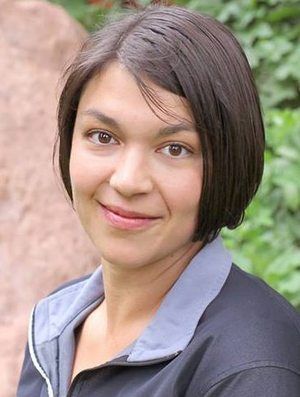Some information may be outdated.
I am the daughter of immigrants, and I am an American.
My late father was from Iran; my mother is from Norway. They met while working at a restaurant in Tennessee, the state where I was born. It’s a classic example of the American “melting pot.” But all my life, I have had my citizenship questioned.
“Where are you from?” a person asks, and I tell them.
“No, but where are you from …” they repeat insistently, like I didn’t understand the question.
But I do understand: the person asking does not see an American when they look at me. It doesn’t compute even when I tell them straight up that I was born here. I can’t tell you how many times I’ve had this exact exchange. Some people have even been surprised I speak fluent English.
It’s not overt racism, but it stems from unexamined assumptions that lend to prejudice: Americans look and act in certain ways; anyone else is not a real American.
When 9/11 happened, I was wrapping up my teen years, attending college and working as a pizza delivery driver. My manager and I had always gotten along. But alone with him in the restaurant one night shortly after the attacks, he asked me in total seriousness, “When the war comes between the Christians and the towel heads, which side will you be on?” He looked at me like he might have to kill me, as I earnestly defended my loyalties. This wasn’t the only bad encounter, but it was the scariest.
There was a lot of talk about how the nation was patriotically united after the attacks. That was true, but many people were left on the outside of that experience, and I was one of them. People looked at me and spoke to me differently. I heard about the rise in hate crimes from the news and I could easily imagine it happening to me. If there was a positive side, it was that I developed a keener empathy for all the innocent people, now and throughout history, who have been victims of prejudice and politics.
But what I remember about that time is the fear. I remember feeling like America didn’t have as much room for me anymore, and like maybe soon there would be no space for me at all.
In the wake of Trump’s election, I’ve remembered this fear as I recognize it in many others: the dread of what comes next.
A few days after the election, a young Moab mother posted on Facebook about a conversation she had with her 7-year-old daughter:
“Mom, did you know that Donald Trump wants to build a wall between America and Mexico?” I asked her who told her that. She told me, her friend Ella (not her real name). I told her that nothing has happened yet and she shouldn’t worry. “Ella is scared that she will have to go back to Mexico … and she hates it there.” I told her to tell Ella that she loves her and doesn’t want her to go anywhere. Unbelievable that this is second-grade playground conversation.
Around the same time, I had a conversation with a Moab man who is disabled and relies on public assistance.
“If I lose my Section 8, I’ll be homeless,” he said. “If they take away Medicare, I won’t be able to get my meds, and I’ll go crazy and wind up in the hospital again.”
The Moab Valley Multicultural Center recently held two Community Gatherings for Peace and Healing. I attended the first one. A calm crowd filled the front area of the Moab Arts and Recreation Center, listening as one person after another took the mic and spoke of their experiences and feelings since the election, both airing their concerns and affirming the inclusiveness and love in our community.
A few things occurred to me then: America doesn’t feel safe for a lot of people right now. And, America hasn’t felt safe for a lot of people, ever. This time of national flux, as scary as it is, is an opportunity. As a nation, we are grappling with some existential questions: What are America’s values? What is a “real American” and who gets to claim that privilege? How will we enact this through policy, and how will we act as citizens in our daily lives?
There is a real power in being physically present to share viewpoints and experiences. If we are to answer these questions with wisdom, we need more places where this can happen.
Whether you voted for Trump or Hillary or third party or not at all: I ran to represent everyone, and I am here for you. You can reach me on my cell phone at 865-385-2527, or email me at hershadi@moabcity.org.
Heila Ershadi is a member of the Moab City Council, but the views expressed are hers alone.
America doesn’t feel safe for a lot of people right now. And, America hasn’t felt safe for a lot of people, ever.
Appreciate the coverage? Help keep local news alive.
Chip in to support the Moab Sun News.



